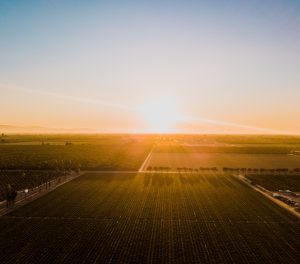
Sunset on a farm in Manteca, California. (Horner, Casey. “Sunday evenings.” Unsplash, 18 September 2017. https://unsplash.com/photos/6tzGnotyesY)
The trends of food system industrialization and nutritionism outlined by Michael Pollan in In Defense of Food have not diminished in the decade since its publication. Neither have the global social, political and economic forces driving those trends. Pollan outlines the bodily and environmental dangers that our new food landscape presents, making a compelling argument that our food needs defending.
What weapons does Pollan suggest we take up in defense of our food? Sadly, very little beyond the rhetoric of individualism. His “recommendations for eating” are frustratingly classist and border on willful ignorance of many people’s daily realities – precisely the people most harmed by the modern food system. “Be the kind of person who takes supplements – affluent and well educated” is hardly actionable advice for most.
Those pages could have been spent addressing the larger systems at play in perpetuating the Western diet and its supporting food system. Besides using our wallets to voice our opinions, thereby operating within the prevailing capitalist structure, how can we challenge the corporations and lobbyists that have corrupted our food landscape? Pollan’s course of action stays safely within the ideology of individualization, offering little for readers except advice for “safely” navigating the current system.
There are compelling alternative methods of growing, distributing, and selling food that deviate from this new normal. Urban farmers like Beth Wheat work to increase access to quality, locally grown food (particularly for those who couldn’t otherwise afford it) while enriching small-scale local economies. Food justice is growing in prominence as an essential element of social justice and equality, but as Wheat notes, systematic change is more difficult to achieve than taking action in our own communities or making individual choices. Those interested in mounting a truly strong defense of food must look to uniting in challenging larger systems.
Michael Pollan, In Defense of Food. Penguin, 2008.
Wheat, Beth. Interview by Karen Liftin. University of Washington POL S/ENVIR 385 Course Materials. Accessed 14 January 2018.
